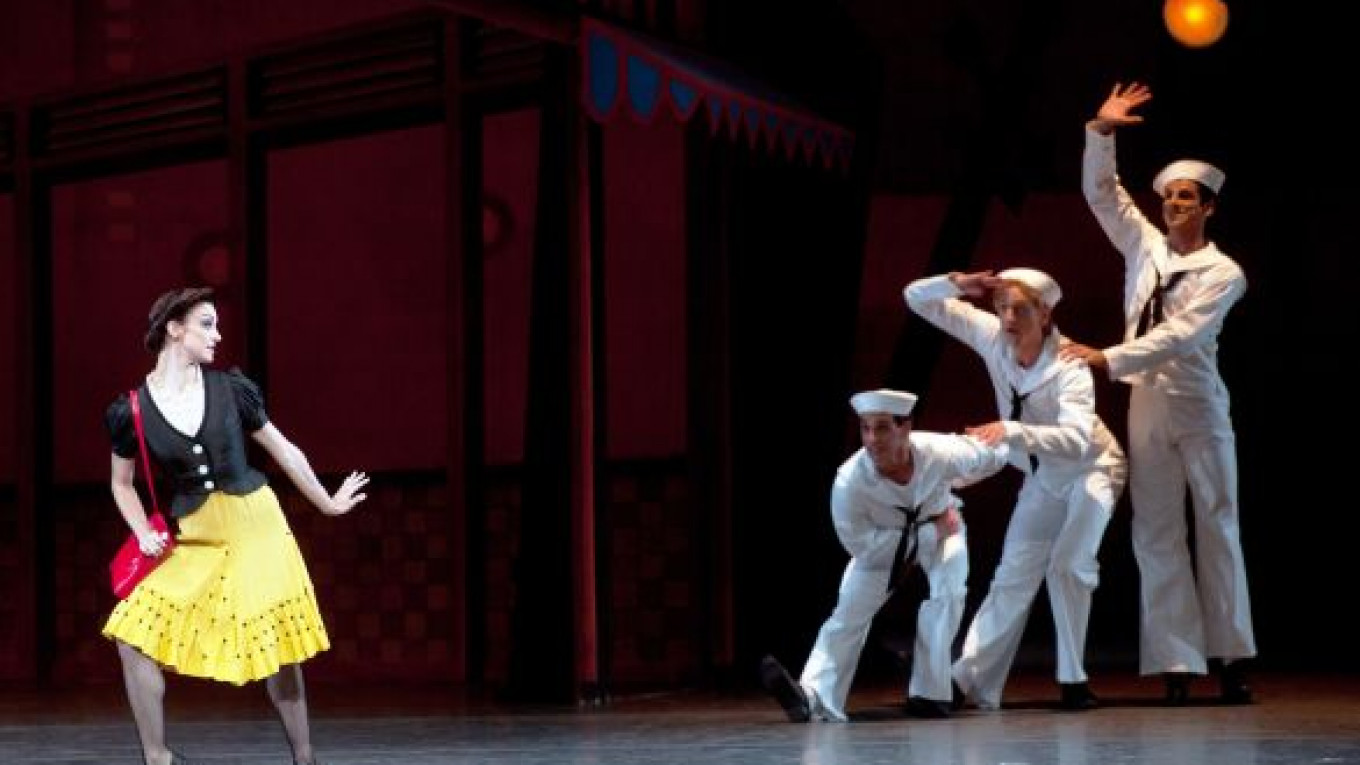This Sunday, the 84th anniversary of the birth of the great cellist and conductor Mstislav Rostropovich, marks the beginning of the 2nd International Mstislav Rostropovich Festival in Moscow.
Last year’s inaugural festival consisted entirely of concert performances, in large part featuring friends, colleagues and students of the famed maestro. Added to concerts on this year’s program will be three performances by one of the world’s most renowned dance companies, American Ballet Theater, in its first Moscow appearance since the 1960s.
Big names from the world of music will again feature on the festival’s concert programs, including the revered Indian-born maestro Zubin Mehta; German conductor Christoph Eschenbach, currently artistic director of both the National Symphony Orchestra and the Kennedy Center in Washington; and two of Moscow’s very own musical stars, violist and conductor Yury Bashmet and pianist Denis Matsuev.
The festival starts off on Sunday at the Tchaikovsky Concert Hall with Eschenbach leading the Russian National Orchestra, two prominent Moscow choruses and vocal soloists from Italy, Mexico, Russia and the United States in Ludwig van Beethoven’s Symphony No. 9.
American Ballet Theater comes next, playing Tuesday through Thursday at the New Stage of the Bolshoi Theater, in a single program with varying casts that combines classics from the company’s repertoire by George Balanchine and Jerome Robbins, a recent work by former Bolshoi ballet artistic director Alexei Ratmansky and the world premiere of a ballet by French choreographer Benjamin Millepied dedicated to the memory of Rostropovich.
Known particularly for its strong contingent of male dancers, ABT is bringing to Moscow a good share of them, including Americans David Hallberg and Ethan Stiefel, Cuban Jose Manuel Carreno and Brazilian Marcelo Gomes, all familiar to Moscow ballet audiences from their appearances here in gala programs, including the recent “King of the Dance,” and, in the case of Hallberg and Carreno, as guests of the Bolshoi.
Balanchine’s “Theme and Variations,” danced to a brilliant movement from Pyotr Tchaikovsky’s Suite No. 3 for Orchestra, was created for ABT in 1947 and, perhaps more than any other of the master’s many ballets, harks back and pays tribute to pre-Revolutionary St. Petersburg and to its Mariinsky Theater, where Balanchine was trained and first danced. Rudolf Nureyev and Mikhail Baryshnikov count among the many dancers who have starred in it for ABT.
Robbins’ “Fancy Free,” which premiered in 1944, is a quintessentially American ballet, set to a score by Leonard Bernstein and depicting the adventures of three sailors on a night of shore leave in New York City during World War II.
The third ballet, Ratmansky’s “Seven Sonatas,” is an entirely abstract work, danced to keyboard music of 18th-century Italian composer Domenico Scarlatti and greeted with overwhelming critical acclaim at its New York premiere in 2009.
Millepied has lately gained fame as choreographer of the film “The Black Swan” and as husband-to-be of its Oscar-winning star, Natalie Portman. His tribute to Rostropovich is called “Troika,” a brief work for three dancers set to excerpts from Bach’s solo cello suites.
The festival’s concerts resume on April 2, with an appearance at the splendid Hall of Columns of the House of Unions by Gidon Kremer and the Kremerata Baltica, a crack ensemble of young musicians drawn from the violinist’s native Latvia, as well as neighboring Estonia and Lithuania. On the program is a Kremer favorite, Robert Schumann’s transcription for violin of his Concerto for Cello and Orchestra, together with one of the most fascinating items on the festival agenda, a series of keyboard pieces by Johann Sebastian Bach arranged for chamber orchestra by eight contemporary composers.
Bashmet and the Novaya Rossiya Symphony Orchestra take the stage of the Hall of Columns on April 3 in a concert featuring Dmitry Shostakovich’s Cello Concerto No. 2, with the solo part entrusted to highly regarded Italian cellist Enrico Dindo, who took first prize at the 1997 Rostropovich Cello Competition in Paris.
The festival concludes on April 4 and 5 with a pair of concerts at the Tchaikovsky Concert Hall by the Orchestra of the Maggio Musicale Fiorentino, one of Italy’s finest symphonic ensembles, under the baton of Mehta, who has served as its chief conductor for the past quarter of a century.
Matsuev is soloist at the first of the concerts, departing from his usual Late Romantic repertoire to tackle the most interpretively challenging of Beethoven’s five piano concertos, the Concerto No. 3 in C minor. Also on the program is Bela Bartok’s Concerto for Orchestra, one of the towering masterpieces of 20th-century music, but a rarity in Russian concert halls.
Mehta and his orchestra conclude the festival with an overture by Giuseppe Verdi, the “Jupiter” Symphony of Wolfgang Amadeus Mozart and a great favorite of the conductor, Gustav Mahler’s Symphony No. 1, subtitled the “Titan.”
For further information about the International Mstislav Rostropovich Festival in Moscow, see www.rostropovichfestival.ru.
A Message from The Moscow Times:
Dear readers,
We are facing unprecedented challenges. Russia's Prosecutor General's Office has designated The Moscow Times as an "undesirable" organization, criminalizing our work and putting our staff at risk of prosecution. This follows our earlier unjust labeling as a "foreign agent."
These actions are direct attempts to silence independent journalism in Russia. The authorities claim our work "discredits the decisions of the Russian leadership." We see things differently: we strive to provide accurate, unbiased reporting on Russia.
We, the journalists of The Moscow Times, refuse to be silenced. But to continue our work, we need your help.
Your support, no matter how small, makes a world of difference. If you can, please support us monthly starting from just $2. It's quick to set up, and every contribution makes a significant impact.
By supporting The Moscow Times, you're defending open, independent journalism in the face of repression. Thank you for standing with us.
Remind me later.






